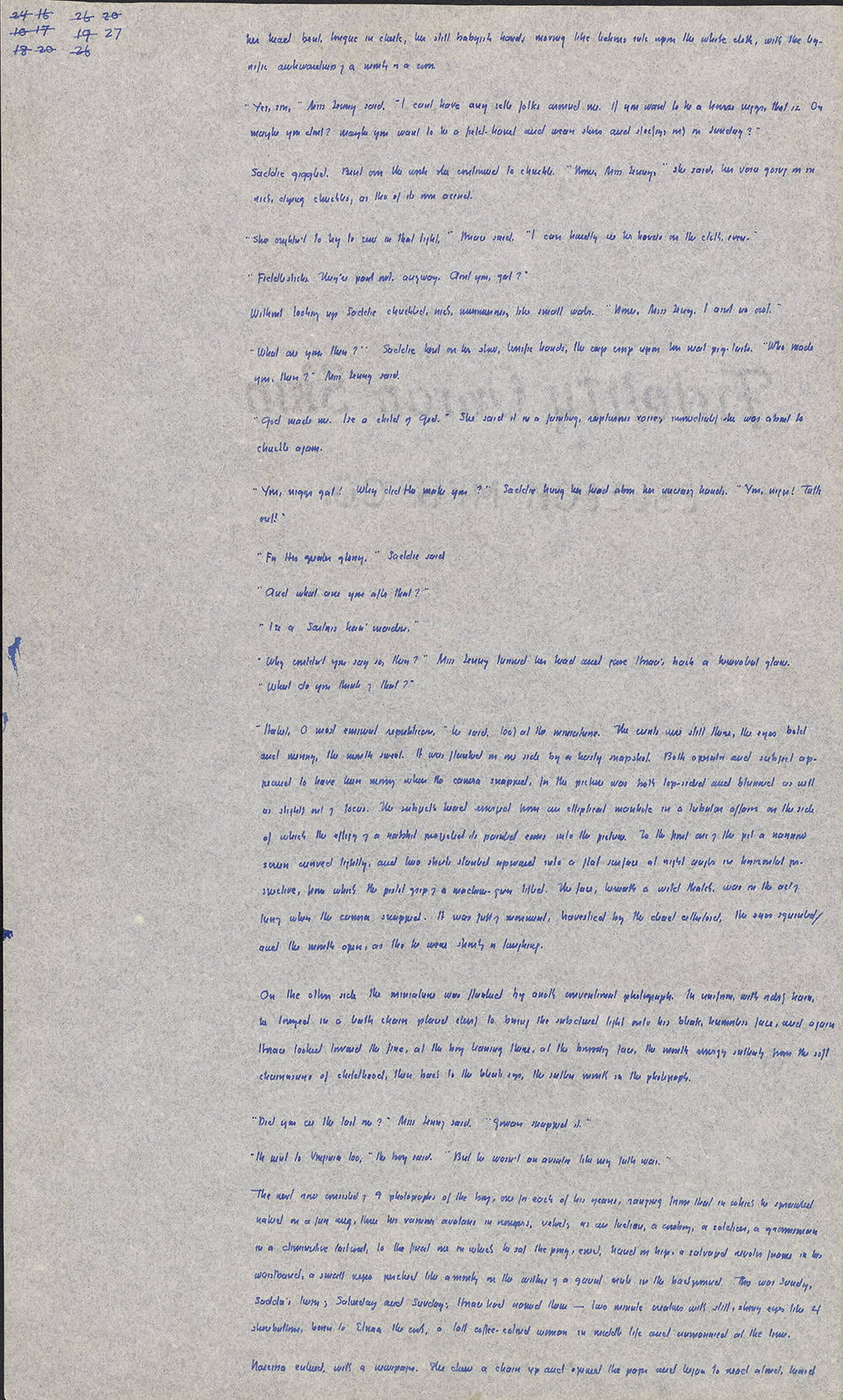
 |
CLOSE WINDOW |
 William Faulkner Foundation Collection, 1918-1959, Accession #6074 to 6074-d, Albert and Shirley Small Special Collections, University of Virginia Library, Charlottesville, Va. [Item Metadata: IA:6) SANCTUARY Autograph manuscript. 138 p. (137 R, 1 V) on 137 l. Slipcase. ] |
|
her head bent, tongue in cheek, her still babyish hands moving like [illegible] ink upon the white cloth, with the ter- "Yes, sir," Aunt Jenny said. "I cant have any idle folks around me. If you want to be a house nigger, that is. Or Saddie giggled. Bent over the work she continued to chuckle. "Nome, Miss Jenny," she said, her voice going on in "She oughtn't to try to sew in that light," Horace said. "I can hardly see her hands on the cloth, even." "Fiddlesticks. They're part owl, anyway. Aint you, gal?" Without looking up Saddie chuckled, rich, [illegible], like small [water?]. "Nome, Miss Jenny. I aint no owl." "What are you then?" Saddie bent over her slow, terrific hands, the cap crisp upon her neat pig-tails. "Who made you, then?" Miss Jenny said. "God made me. Ise a child of God." She said it in a fainting, rapturous voice; immediately she was about to "You, nigger gal! Why did He make you?" Saddie hung her head above her unceasing hands. "You, nigger! Talk "For His greater glory," Saddie said. "And what are you after that?" "Ise a Sartoris han' maiden." "Why couldn't you say so, then?" Miss Jenny turned her head and gave Horace's back a benevolent glance. "Habet, O most eminent republican," he said, looking at the miniature. The curls were still there, the eyes bold On the other side the miniature was flanked by another conventional photograph. In uniform, with orderly hair, "Did you see the last one?" Miss Jenny said. "Gowan snapped it." "He went to Virginia too," the boy said. "But he wasn't an aviator like my father was." The next row consisted of 9 photographs of the boy, one for each of his years, ranging from that in which he sprawled Narcissa entered, with a newspaper. She drew a chair up and opened the paper and began to read aloud, lurid |